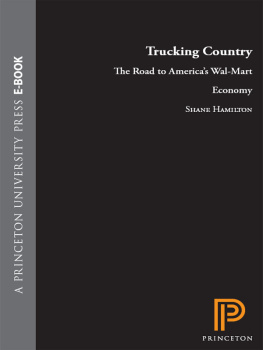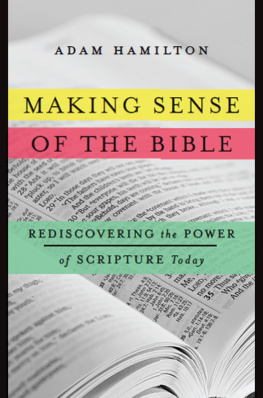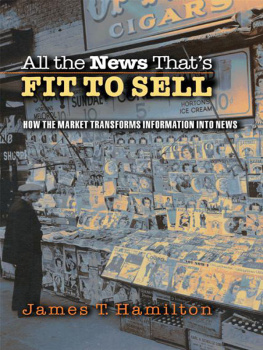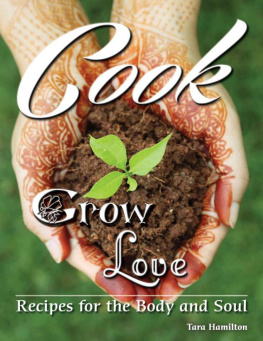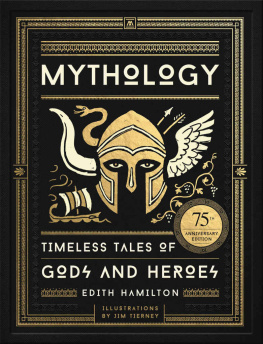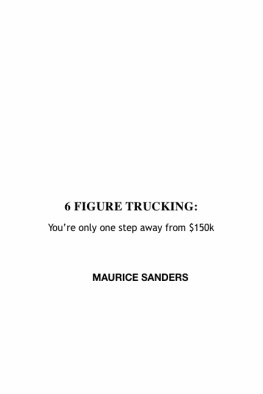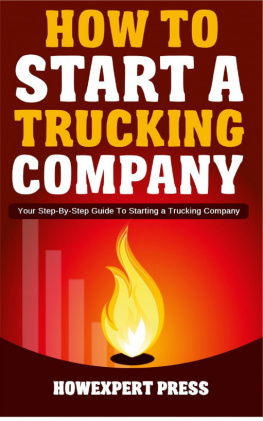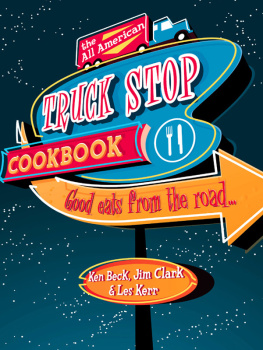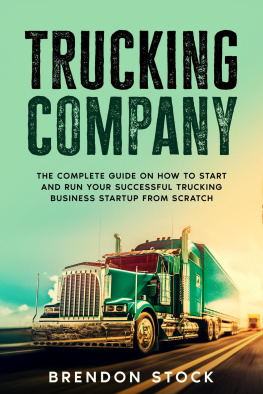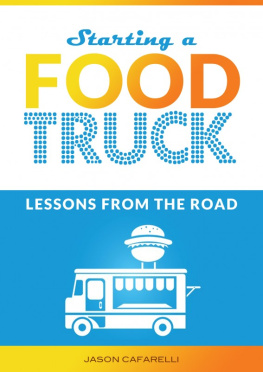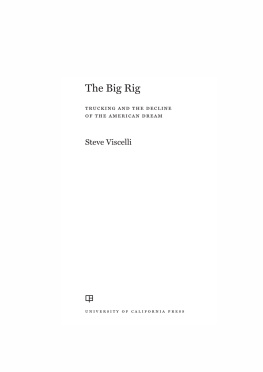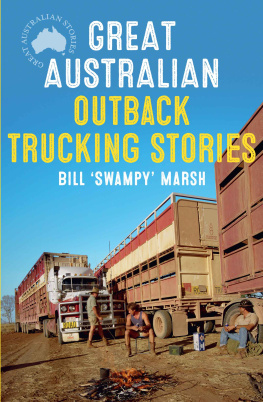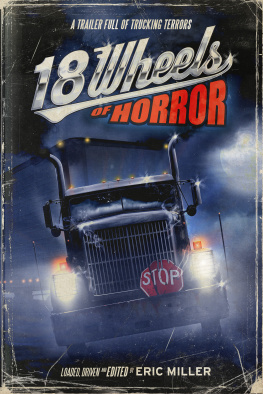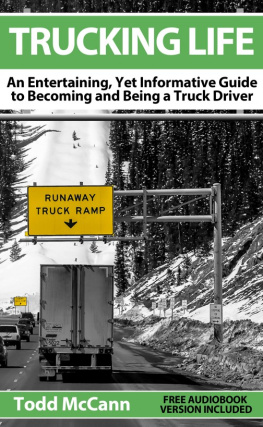
TRUCKING COUNTRY
POLITICS AND SOCIETY IN TWENTIETH-CENTURY AMERICA
Series Editors
William Chafe, Gary Gerstle, Linda Gordon, and Julian Zelizer
A list of titles in this series appears at the back of the book
TRUCKING COUNTRY
THE ROAD TO AMERICAS WAL-MART ECONOMY
Shane Hamilton
Princeton University Press
Princeton and Oxford
Copyright 2008 by Princeton University Press
Published by Princeton University Press, 41 William Street, Princeton, New Jersey 08540
In the United Kingdom: Princeton University Press, 6 Oxford Street, Woodstock, Oxfordshire OX20 1TW
All Rights Reserved
Library of Congress Cataloging-in-Publication Data
Hamilton, Shane, 1976
Trucking country : the road to America's Wal-Mart economy / Shane Hamilton.
p. cm. (Politics and society in twentieth-century America)
Originally presented as the author's thesis (doctoral)Massachusetts Institute of Technology.
Includes bibliographical references and index.
ISBN 978-0-691-13582-3
1. Truck driversUnited StatesHistory. 2. United StatesRural conditions. 3. United StatesEconomic conditions20th century. I. Title.
HD8039.M7952U529 2008
303.48'32dc22 2008009874
British Library Cataloging-in-Publication Data is available
This book has been composed in Adobe Garamond
Printed on acid-free paper.
press.princeton.edu
Printed in the United States of America
1 3 5 7 9 10 8 6 4 2
For Chloe
CONTENTS
ILLUSTRATIONS AND TABLES
FIGURES
TABLES
ACKNOWLEDGMENTS
Writing a book, like driving a big rig, involves many solitary hours of work, and I am grateful for this opportunity to thank colleagues and friends who have shared ideas and camaraderie with me on this long haul. At the Massachusetts Institute of Technology, Deborah K. Fitzgerald taught me how to reframe and rethink rural history. Her warmth and generosity are unparalleled and remain inspiring. Meg Jacobs made this book possible in countless ways, and above all encouraged me to tackle the biggest questions in American political economy. Merritt Roe Smiths work on technology, culture, and capitalism drew me to MITeven before I discovered that we share a passion for classic country music. I am indebted to many friends and teachers in Cambridge, especially the Atomic Harvesters, Lizabeth Cohen, David Kaiser, Dave Lucsko, Leo Marx, Harriet Ritvo, Jennifer Leigh Smith, William J. Turkel, and Anya Zilberstein. Undergraduate mentors at the University of Wisconsin-Madison convinced me I could make a career out of studying rural culture and political economy, particularly James Baughman, Paul Boyer, Colleen Dunlavy, and Stanley Schultz.
Generous readers helped me transform an unwieldy dissertation into a book. Julian Zelizer carefully read multiple drafts, and his uncanny ability to extract clarity out of chaos has been invaluable. Nelson Lichtenstein graciously offered crucial insights, critiques, and encouragement at every stage of revision. An anonymous reader for Princeton University Press provided extraordinarily thoughtful suggestions, as did the editors of the Politics and Society in Twentieth-Century America series. Incisive comments from William Childs, James Cobb, Mark Rose, and Edmund Russell led to substantial improvements. I am also grateful for the feedback and friendship of my colleagues at the University of Georgiaespecially Ben Ehlers, Peter Hoffer, Allan Kulikoff, Ari Levine, Stephen Mihm, Bethany Moreton, Claudio Saunt, William Stueck, Paul Sutter, and Pamela Voekel. Thanks are also due to individuals who have read and shared wisdom on various portions of this project over the years, including Hal Barron, Paul Burnett, William Cronon, Deb Fink, Walter Freidman, Grace Hale, Thomas Hughes, Joan Jensen, Jon Lauck, David Nye, Jeffrey Sklansky, John Staudenmaier, and Richard Tedlow. Brigitta van Rheinberg and Clara Platter at Princeton University Press deserve innumerable thanks for guiding me through the revision and production process.
It is fitting that a book about trucking culture required me to spend many days (far more than six) on the road. A Dissertation Improvement Grant from the National Science Foundation and research funds provided by the University of Georgia Alumni Research Foundation and the Willson Center for the Humanities and Arts made those travels possible. At a crucial juncture in the writing process, the Royal Institute of Technology in Stockholm provided me with a chance to view U.S. history from an outsiders angle. Predoctoral fellowships from the Dibner Institute for the History of Science and Technology, the Smithsonian Institutions National Museum of American History, and the Miller Center of Public Affairs at the University of Virginia gave me time and space to do research. These travels allowed me to share ideas and company with great scholars and wonderful people, including Brian Balogh, Bernard Carlson, Alex Checkovich, Pete Daniel, Sara Gregg, Derek Hoff, Arne Kaiser, Chris Loss, and Sidney Milkis.
The archivists who suffered my endless requests for dusty boxes deserve special thanks. Harry Miller at the Wisconsin Historical Society, Joe Schwartz at the National Archives, Dawn Oberg at the Country Music Hall of Fame, the staff of the Smithsonian Institution Archives Center, Bill Johnson at the American Truck Historical Society, and Olga Montgomery at the Finney County Historical Society pointed me to sources I never could have found on my own. Ty and Earl Brookover, Ken Greff, Kevin Patterson, Lawrence Pilgrim, and Robert Vandivier welcomed me and my tape recorder into their lives, while many other truckers shared their working knowledge with me anonymously. I only hope I have done their stories justice.
Although I grew up in rural Wisconsin, I knew I would never be a farmer as nearly every member of every previous generation on both sides of my ancestral tree had been. My familys support allowed me to take the trip back East to write about the people and places I can never leave behind. My parents struggled to make a living in a world of limited opportunities, and I know how proud both would have been to see this book in print. My mothers wisdom, work ethic, and refusal to surrender despite unceasing adversity offer daily inspiration as I strive to honor her memory. My sisters, Shamane and Sheri, have been extraordinary role models and I can never thank them enough for the sacrifices they have made on my behalf. Jay, Laura, Nancy, Elliot, Max, Carol, and Mort deserve special thanks for warmly welcoming a country boy into their family.
Chloe Wigston Smith has worked nearly as hard on this book as I have. I dedicate this book to her, because she has read every word I have written, sharpened my thoughts on gender and culture, and patiently listened as I tried to formulate words and thoughts as elegantly as she does. I could not have completed this book if Chloe had not completed me.
TRUCKING COUNTRY
INTRODUCTION
Armed with bricks, knives, and shotguns, angry bands of truck drivers roamed the nations highways in the summer of 1979, shattering windshields and slashing fellow truckers tires. Governors of nine states summoned National Guard troops as escalating violence caused one death and dozens of injuries. Though most remained peaceful, as many as 75,000 truckers blockaded interstates, encircled fuel pumps, parked their rigs at home, or otherwise tried to shut down the nations highway transportation system. Many refused to haul milk, meat, fruit, and vegetables, provoking panic buying sprees in suburban supermarkets. Midwestern meatpacking factories laid off workers and produce rotted in California fields. The protest ostensibly erupted in response to rapidly rising fuel prices in the wake of the Iranian Revolution. But for Mike Parkhurst, self-proclaimed instigator of the shutdown and editor of
Next page
